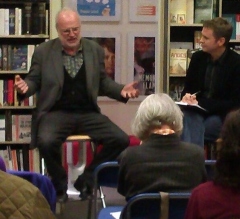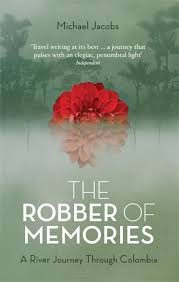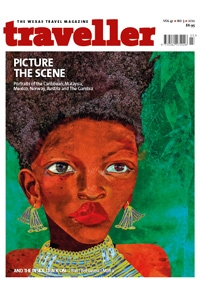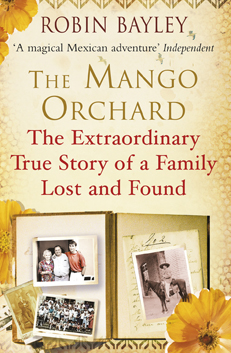I rose with the desert sun, a mere two hours after having returned from a Mojito soaked evening in a salsa club. It was my last night in Mexico and I had to be up early to catch one of several flights to reach home. Why is it, I thought to myself, that an early start is so frequently foreshadowed by a late night?
I found myself thinking about my friend, the writer and bon viveur, Michael Jacobs. I’d recently been re-reading his excellent book, Andes, in which he constantly squeezes every last drop out of an evening. For him, late night carousing and early morning volcano scaling would often be punctuated only by a quick shower and change of clothes. The first time I met him we spent the night drinking Guatemalan rum until I was sweating the stuff. The following morning I felt every bit as ropey as I did now.
I reached for my phone, keen to head-off the unpleasant jolt of my alarm. Still rubbing sleep from my eyes, I scrolled through my mails. To delay getting out of bed a few moments longer, I opened up Facebook. Funnily enough, right at the top of my newsfeed was a picture of Michael proudly receiving a culinary award. It was a photo I had first seen a few months before. It was unlike him to repeat a photo, or indeed, to repeat anything. I read the accompanying text. It was written by two of his Spanish friends, saying that Michael had died.
I read the post again, desperately hoping I had misunderstood, but the many messages that had already been left, mirroring my own shock and sadness, put the news beyond doubt.
Although Facebook is very effective at broadcasting personal news, especially for someone with so many friends spread so widely throughout the world, we’re all still struggling with the etiquette. The post announcing Michael’s death had 26 “Likes”.
I only met Michael towards the end of 2012, at the launch of his last book, The Robber of Memories, and was immediately struck by his irrepressible modesty – on this, a night dedicated to him and his new publication – his boundless charm and genuine interest in others.
In the book, which many believe to be his best, he navigates the often murky waters of the great Colombian river, the Magdalena. The journey is interwoven with a very personal meditation on the effects of memory loss. If there is one silver lining in Michael’s premature passing, it is that he was spared the destructive power that dementia had on the minds of both his parents and one of his literary heroes, Gabriel García Márquez.
One of the people to whom The Robber of Memories was dedicated was his much loved Uncle Brendan, a doctor who helped Michael to deal with the slow disappearance of his father’s lucid mind. His advice could have been Michael’s own motto for his time on earth: “to enjoy one’s own life with added intensity.”














